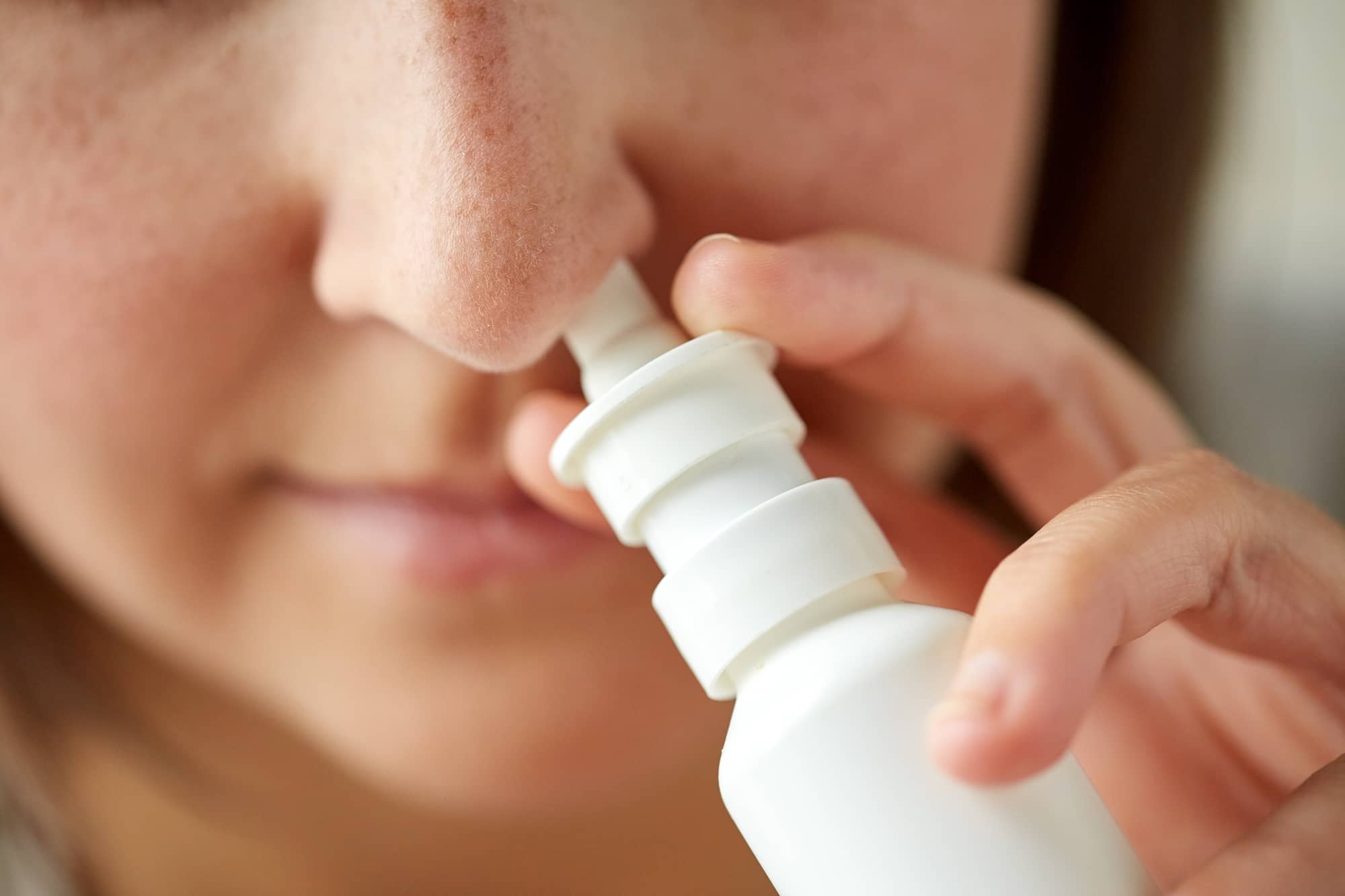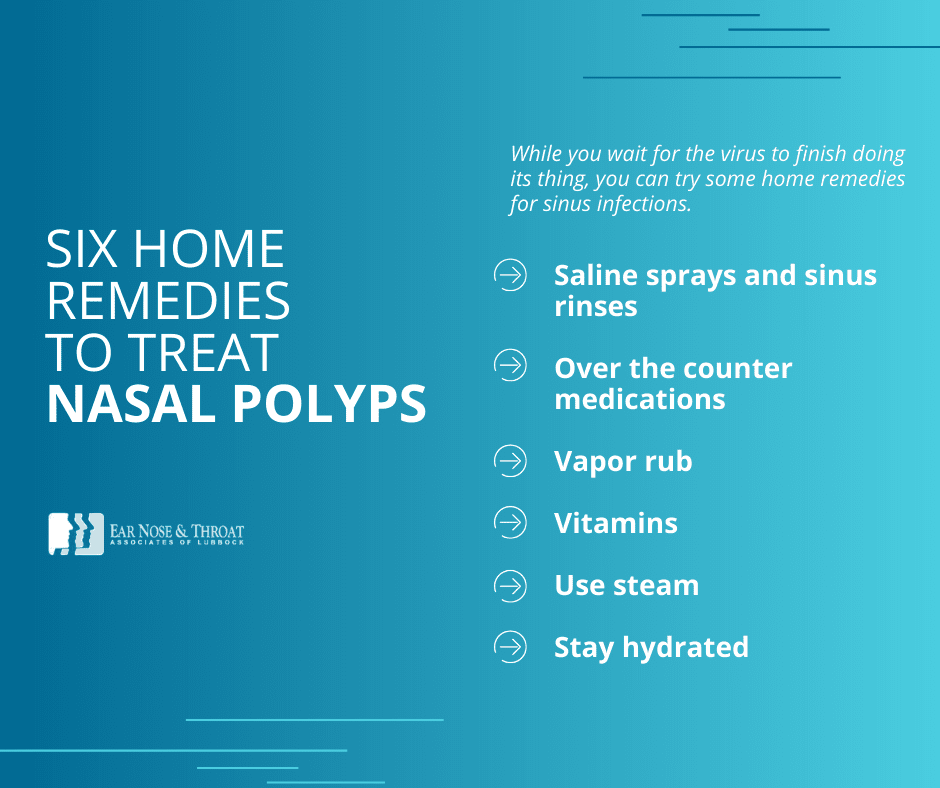6 Sinus Infection Home Remedies Recommended by a Doctor

You probably don’t give too much thought to your ability to breathe through your nose — until you wake up with a sinus infection and that ability is gone!
Sinus infections, sometimes called acute sinusitis, can steal your joy pretty quickly.
A lot of viruses start with nasal symptoms. If you have a scratchy throat, congestion, and a runny nose, you’ve probably got a virus on your hands.
(You should probably go wash those, by the way.)
What’s Happening in My Body?
Most sinus infections come from colds that start in the nose. (Doctors and nurses actually call the viruses that cause these “rhinoviruses,” because rhino means nose!)
A lot of sinus infections are caused by coronaviruses. (The SARS-CoV-2 virus that causes COVID-19 is a more severe type of coronavirus, but studies have shown that an estimated 15% of common colds originated from less serious coronaviruses.)
These viruses replicate in the nose. Your immune system then kicks off an inflammatory response to help kill the virus. This can cause swelling in the sinuses, leading to your symptoms.
Unlike bacterial infections, viral infections don’t respond to antibiotics and usually just need to run their course. But you don’t have to take it lying down!

Home Remedies for Sinus Infections
While you wait for the virus to finish doing its thing, you can try some home remedies for sinus infections to make yourself more comfortable.
Saline Spray and Sinus Rinses
Using a saline solution, rinse your nose and sinuses with a neti pot or other irrigation system.
You can buy saline solution over the counter or make your own at home with distilled water and saline packets. Saline spray also comes in small bottles that you can spray directly into your nose.
Sinus rinses like these work by flushing mucus out of the nose and sinuses to keep things flowing freely.
Saline also has a natural decongesting effect, meaning it shrinks your swollen nasal tissues and makes it easier for you to breathe through your nose!
Over the Counter Medications
For help alleviating sinus pressure and pain, try ibuprofen and a decongestant. Some medications include a combination of pain reliever and decongestant. (Advil Cold and Sinus is one example.)
Mild antihistamines like Claritin and Allegra are helpful in moderation. Strong antihistamines like Benadryl are often way too drying. Be careful not to take antihistamines too often.
Even though you want your nose to stop running, too many antihistamines can make it more likely that you’ll get sinus infections in the future.
Drugs like Mucinex and Flonase can also be helpful in thinning the mucus in your nose and sinuses. (Don’t use Mucinex-D if you have high blood pressure, though!)
If you use Afrin, make sure you stop after three days. Though it can seem like a miracle drug, using it more than three days in a row can lead to something called rebound congestion. In other words, when you stop using the Afrin after continuous use, your nose becomes more congested than it was in the first place!
Vapor Rub
Vapor rub products like Vicks usually contain mentholatum, which can help clear out your sinuses. Breathing mentholatum works similarly to eating spicy foods. You can apply vapor rub to your chest or add it to a humidifier.
Take Your Vitamins
Supplementing your diet with vitamins, especially vitamin C and vitamin D, can give a boost to your immune system to help it kick infection to the curb.
Vitamin C can be taken in chewable, liquid, or pill form. Vitamin D is usually taken in capsule or oil form.
Closely follow all directions on the bottle from the manufacturer.
Steam It Out
Steam is a great natural way to reduce the symptoms and discomforts of a sinus infection. The moist heat can open up your sinuses and help you breathe better.
Try the steam method by taking a hot shower, or just turn the shower on and sit in the steamy bathroom for 15 or 20 minutes.
Adding a humidifier or vaporizer to your bedroom at night can also help you breathe easier while you sleep.
Stay Hydrated
Fluid intake is one of the best ways to keep the mucus flowing so it doesn’t clog up your sinuses.
Be sure to drink plenty of water. You can also try an electrolyte beverage such as Gatorade.
Do These Things Work for Kids?
Sinus infections make everyone miserable, children as well as adults!
Most of the tips above also work for kids, but antihistamines aren’t recommended for young children.
Young children can’t blow their noses well, so helping them thin and clear the mucus from their nose is beneficial.
A nasal aspirator or a product like the Nose Frida can be a lifesaver in helping young children breathe through their nose.
A warm bath can help clear the sinuses and take a child’s mind off their illness.
Kids are often fascinated by the condensation that forms on surfaces in a steamy room. To occupy them while a hot shower runs in the bathroom, try tracing pictures with them on the mirror!
When Should I See a Doctor?
These home remedies for sinus infections are great for acute infections in the upper respiratory system.
But if five days or so pass and you’re not seeing any improvement, or if things are getting worse, it’s probably time to see an ENT doctor.
If you feel a lot more pressure behind your cheekbones and eyes or your nasal drainage has changed to yellow or green-tinged, it’s likely your sinus cavity has gotten infected from the blockage.
If you have symptoms like a fever, body aches, chills, chest congestion, or a cough, something more serious could be going on. Especially in this era of COVID-19, it’s a good idea to get checked out just to be safe.
If you’ve tried these home remedies without luck, contact ENT Associates of Lubbock to see what your next steps should be.
Dr. Scolaro is a board-certified Otolaryngologist servicing the South Plains area. He has been practicing in Lubbock since 1990 and has earned a reputation as a skilled and experienced surgeon. He currently serves as the Medical Director for Covenant High Plains Surgery Center campuses, is a member of Covenant Health Partners and is an adjunct faculty professor for Texas Tech University Health Sciences Center School of Medicine. Learn more about Dr. Scolaro.
Categories:








